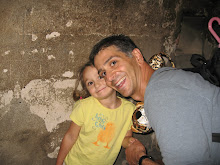The debates about the value of the humanities are as old as the humanities themselves. In his Republic (4th century BCE), Plato argues that in an ideal republic the arts would be banished. Part of his rationale is that they arouse the passions. The humanities play on people’s emotions leading them to behave in unwanted ways. This is, of course, an early iteration of the charge of the immorality of the arts. In the last several decades, the degeneracy of culture—and hence of the humanities—has been commonplace in political rhetoric in the United States.
An unusual defense of literature occurs in Giovanni Boccaccio’s Decameron (ca. 1351). The work, a classic of world literature, is comprised of one hundred tales. Boccaccio situates the tales within a frame story of ten youths who escaped the plague of 1348, and who amused each other by telling tales for ten days. But at the start of the fourth day, the author breaks into the narrative and offers a defense of his art.
Boccaccio claims that some people have read his tales and have accused him of immorality. The presence of the defense indicates that his tales probably circulated individually as he composed them. And in this instance the suggestion of immorality is not unfounded. The last tale of the third day consists of a particularly saucy story, involving an old hermit who teaches a young woman to serve God by “putting the devil into hell.” Ahem.
At the start of day four, Boccaccio does not argue about the charges against him, nor does he apologize for his bawdy tales. The defense of his art consists of yet another narrative—yes, the Decameron actually contains one hundred and one tales. He tells of Filippo Balducci, a saintly man who had decided to become a hermit after his wife’s death. Now advanced in years, he must journey into the city with his son, whom he had raised exclusively in a cavern. Balducci’s son is amazed at all the new sights of the city—the tall palaces, the fine clothing, and all the hustle and bustle—but when a group of young women passes by, the old man commands him to lower his eyes.
“They are evil,” he tells his son, who had never before seen a woman nor knew of their existence.
“Father, they are more beautiful than the angels painted in our cave. What are they?”
Trying to prevent any lustful thoughts in his son, he responds, “They are ducks.”
“Please father,” the son begs, “can’t we take home a duck?!”
Boccaccio then notes how powerful nature is. Even this young man, who was raised in a purely holy environment, immediately felt desire for opposite sex.
Boccaccio apparently had Plato in mind when he composed the story. Filippo does everything in his power to curb his son’s natural urges. He even struggles against language—the very stuff of literature—by deliberately using the wrong word. By not naming the women, he hopes to prevent sexual attraction. Yet he fails. With the tale Boccaccio rebuts the charge of that the humanities result in immoral acts. The passions exist naturally, whether people talk about them or not. To castigate, control, or even ban literature outright would have no effect on people’s actual behavior. The story of Filippo Balducci exemplifies how culture is powerless in the face of nature.
I am always reminded of this tale when I hear about “abstinence-only” sexual education. Much “abstinence-only” education is predicated on the idea of not teaching facts about birth control; if people don’t know about responsible sexuality, the thinking goes, they’ll be too scared to engage in any sexual behaviors at all. I have no problem with instructors preaching abstinence, but they have a duty to teach contraception and disease-prevention. Instead, the purveyors of “abstinence-only” are acting like Filippo Balducci, hoping to prevent sexual activity altogether by controlling the language about sex.
Numerous studies are now showing that “abstinence-only” is about as unsuccessful as Filippo Balducci. A recent study shows that teens who learn “abstinence-only” are just as likely to have intercourse, but less likely to take necessary precautions. As in the case of Filippo’s son, even someone entirely ignorant of the language of sex still has sexual impulses. The last time I checked, internal drives led teens to sexual exploration not literary works. Silence and misinformation will do nothing to stave off sexual activity. Call it a duck if you like or call it nothing at all, even go so far as declaring a “culture war,” but human nature is still in full force.
Saturday, October 17, 2009
Subscribe to:
Post Comments (Atom)




No comments:
Post a Comment
Note: Only a member of this blog may post a comment.